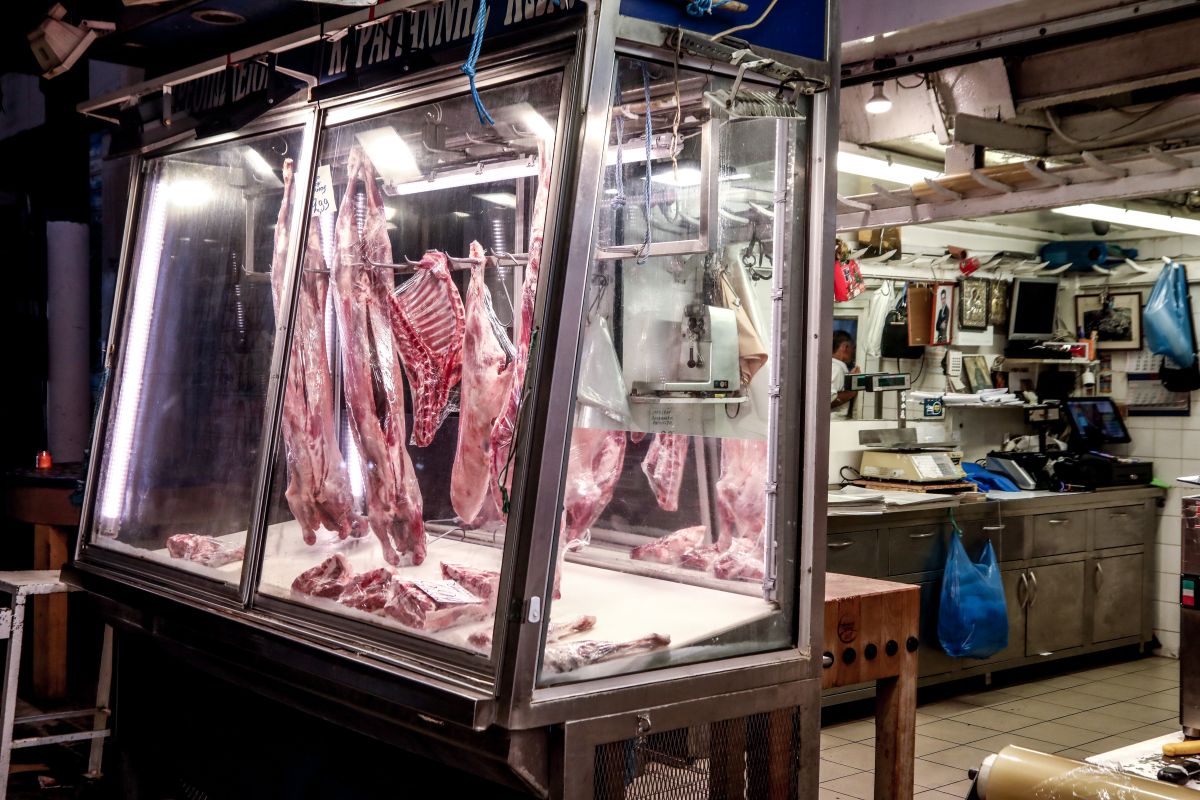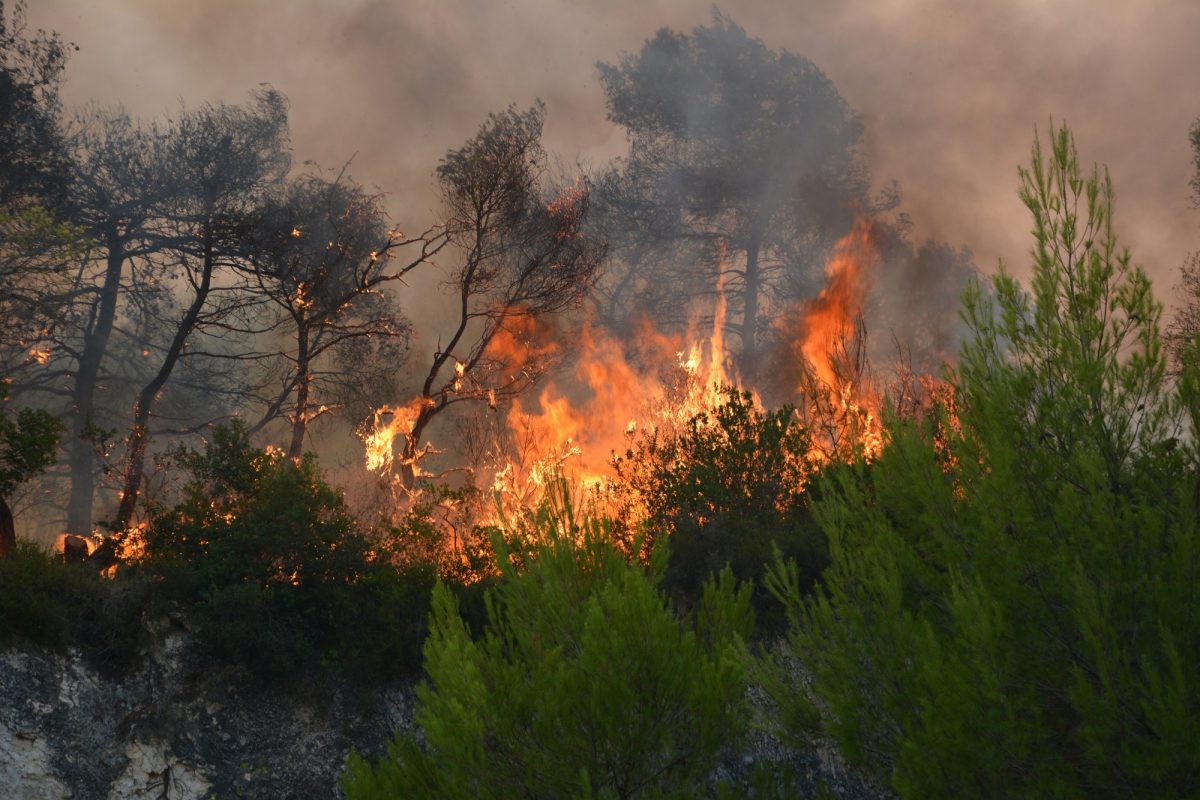The danger that the phenomena of profiteering in the meat market will “flare up” is visible both due to the increased tourist traffic and in view of the rising demand due to the 15th of August. It seems that the cause this time will be the plague of goats and sheep, which affects several regions of the country and at the same time intensifies the massive imports from neighboring states.
Lambs, goats and sheep are already on the market exclusively from Romania, which is also affected by the plague (some 230,000 sheep and goats have already been killed) and Spain, at much higher prices compared to last year.
These days and until Sunday, August 9, there are no Greek sheep and goats in the wholesale trade, due to the restrictive measures in force since the end of July, with a ban on the movement and slaughter of domestic animals.
At the same time, as the breeders have reported to OT, although the slaughter of Greek animals is prohibited throughout the territory, the importation of carcasses from the “clean” areas of Romania is allowed.
The truth about the massacres
In the summer season peaking in August, the increased demand for lamb and goat is met through imports. And this is because, in the summer, Greek goats and sheep are in milk production season and slaughters are limited.
This year, however, due to the spread of the plague and restrictive measures to eradicate zoonoses – at least until next Sunday – things are changing. It is completely forbidden to slaughter even the few animals that are available from the breeders.
However, questions arise about the origin of the amnoerifia that will be on the market for the needs of the Fifteenth of August.
As Dimitris Moschos, vice-president of the Hellenic Livestock Association, has already warned in his previous statements to OT, “if on the 15th of August, the measures which provide that we breeders cannot slaughter animals, the lambs that will be released on the Greek market from where will it be? They will be carcasses that will have come from Romania, as imports from this country continue. Romania says it ships to Greece from its clean areas. But we here, from the clean areas, such as Western Macedonia, cannot slaughter to send to the butchers. What logic is there here?’
However, the dimensions that the zoonosis has taken since the day the first case was detected on July 11 in Thessaly and the spread of the virus, with outbreaks from Komotini to Crete, do not make anyone complacent. Already, according to official data, up to August 7, 2024, 18,335 goats and sheep have been killed or are planned to be killed in the next few days throughout Greece.
A small number, of course, for the total size of goat and sheep farming in Greece, where according to the latest data, the animals in the farms amount to 15 million, but large for the breeders.
Romanian and Spanish sheep and goats on the market
The market is completely dependent on imports and small shortages have already begun to be observed at the wholesale trade level, which, according to market executives, may increase in the coming days. “However, everything will depend on the course of the zoonotic disease,” say producers and traders.
It is typical in the wholesale price list posted by the Central Markets and Fisheries Organization (OKAA), there is no price for Greek lambs, goats, goats and sheep, as it is stated “there is no availability”.
At the same time, however, Romanian lambs are sold from 9.50 euros/kg to 11 euros/kg, when last year’s corresponding wholesale price was from 8 euros/kg to 8.80 euros/kg. Spanish equivalents are sold even more expensively, with prices ranging from 9.70 euros/kg to 11.20 euros/kg.
The president of GSEVEE and president of the Panhellenic Federation of Restaurateurs and Related Professions, Giorgos Kavvathas, speaking to OT, says that although there are no shortages in the market, the first dysrhythmias in the supply are nevertheless beginning to appear. At the same time, he emphasizes that revaluation phenomena are already being detected. “We are informed that there is a small increase in prices to the level of 13 euros per kilo (including VAT)”, he pointed out. The biggest risk, however, according to Mr. Kavvathas, is the mass imports and Greekizations from neighboring countries in view of the 15th of August holiday season.
Breeders warn
The representatives of the producers are sending out a warning signal about the possibility that the whole situation will take uncontrollable dimensions and that some astute people will find an opportunity to make a profit while on the one hand the farmers are losing their livelihood and on the other hand the households are unable to buy the necessary things.
“Always in such cases some people find the opportunity to speculate and apparently they are already doing it. Measures and controls are needed so that there is no problem in the market and the consumer pays for it again”, warned Pavlos Satolias, the president of the National Union of Agricultural Cooperatives (ETHEAS) and president of the Agricultural Dairy Cooperative of Kalavryta, in his statements to OT.
He himself was categorical that “the market of meat and milk and dairy products will not be affected in the long term because the participation – at least from what it seems so far – of infected animals is very small.”
Checks to put a stop to the profiteering
In an effort not to be caught prematurely, the leadership of the Ministry of Development decided to act proactively, hence from yesterday, Wednesday, August 7, 2024, levels of the Interagency Market Control Unit (DIMEA) are carrying out extensive controls in the central market of Athens in the area of Rentis.
According to Minister Takis Theodorikakos, the checks, which concern lambs, calves, pigs and chickens, will continue throughout the week in shops in and around the market, mainly in meat importers and wholesalers. Potential scams and unjustified price increases on these products are targeted.
According to the official information, the controls concern the application of the current legislation on the ceiling on the profit margin in relation to December 2021.
Source: ot.gr
#Plague #price #increases #expensive #Romanian #Spanish #lambs

